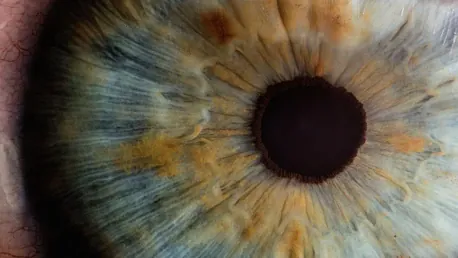BlueRock Therapeutics, a cell therapy company under Bayer, has recently announced FDA clearance for its Investigational New Drug (IND) application for OpCT-001. This investigational induced pluripotent stem cell (iPSC)-derived therapy aims to treat primary photoreceptor diseases, which are a subgroup of inherited retinal disorders like retinitis pigmentosa and cone-rod dystrophy, both leading to irreversible vision loss. With approximately 110,000 individuals in the US affected by these conditions and limited treatment options available, OpCT-001 presents a potential groundbreaking solution by replacing degenerated retinal cells with functional ones.
The Pioneering Clinical Study
Initial Phase 1/2a Study
BlueRock Therapeutics is setting the stage for a pioneering clinical trial, marking the first clinical evaluation of an iPSC-derived therapy aimed at treating primary photoreceptor diseases. The Phase 1/2a study is meticulously designed to assess not only the safety and tolerability of the subretinal administration of OpCT-001 but also its impact on retinal structures, visual function, and functional vision across various dose levels. This comprehensive approach ensures that the therapy’s effectiveness is closely monitored, providing invaluable insights into its potential benefits and any safety concerns. The trial will be conducted at multiple sites across the US, ensuring a wide-ranging participation that could enhance the robustness of the study’s findings.
The urgency and significance of this study cannot be overstated, given the absence of effective treatments currently available for primary photoreceptor diseases. Retinitis pigmentosa and cone-rod dystrophy progressively impair vision, eventually leading to significant vision loss or blindness. By focusing on replacing the degenerated retinal cells with functional equivalents, OpCT-001 aims to offer a new ray of hope for patients who have been living with the debilitating consequences of these conditions. Patients and their families are eagerly watching the progress of this clinical study, as it promises not just a treatment but potentially a transformative therapy for inherited retinal disorders.
Exclusive Licensing and Collaboration
OpCT-001 was exclusively licensed from FUJIFILM Cellular Dynamics and Opsis Therapeutics in January 2024. This milestone followed a strategic R&D and clinical manufacturing collaboration established in 2021, significantly contributing to the development of OpCT-001. FUJIFILM Cellular Dynamics played a pivotal role, leveraging their research, development, and clinical manufacturing expertise at their cGMP facility in Madison, Wisconsin. This collaboration emphasizes the importance of strategic partnerships in driving forward novel therapies in the biotech sector.
The exclusive licensing agreement not only underscores the confidence that BlueRock has in the potential of OpCT-001 but also highlights the synergistic capabilities of its partners. The involvement of FUJIFILM Cellular Dynamics brought in cutting-edge technology and expertise in stem cell research, providing a strong foundation for the clinical trial efforts. As the clinical trials progress, the collaborative groundwork laid by these entities will be critical in supporting the complexities involved in bringing a first-of-its-kind therapy like OpCT-001 to market, potentially revolutionizing the treatment landscape for inherited retinal diseases.
Future Prospects in Cell Therapy
Potential Impact on Vision Restoration
While OpCT-001 remains an investigational therapy and has not yet received approval from regulatory authorities, its development represents significant progress in the field of cell therapy and vision restoration. Amit Rakhit, BlueRock’s Chief Development and Medical Officer, has voiced strong optimism about the potential of OpCT-001 to restore vision in individuals afflicted with these challenging conditions. This sentiment is a testament to the groundbreaking work being done in cellular therapy, which could pave the way for new treatments, not just for retinal diseases but for a range of other conditions as well. The development of OpCT-001 exemplifies the innovative strides being made in regenerative medicine and the potential it holds for future therapeutic applications.
The promising outlook for OpCT-001 reflects years of dedicated research and collaboration. Should the clinical trials demonstrate both safety and efficacy, this could lead to a paradigm shift in how inherited retinal disorders are treated, moving away from symptomatic management towards potentially curative interventions. The broader implications of these advancements in stem cell research could extend to numerous other diseases characterized by cell degeneration, opening up new avenues for treatment and improving the quality of life for countless patients.
Optimism and Hope
BlueRock Therapeutics, a subsidiary of Bayer, has achieved an important milestone with the FDA recently giving clearance to its Investigational New Drug (IND) application for OpCT-001. This innovative therapy is derived from induced pluripotent stem cells (iPSCs) and is designed to treat primary photoreceptor diseases. These disorders, which include retinitis pigmentosa and cone-rod dystrophy, are forms of inherited retinal conditions that lead to progressive and often irreversible vision loss. There are about 110,000 people in the United States diagnosed with these debilitating diseases, and current treatment options are few and far between. OpCT-001 offers a pioneering approach by aiming to replace damaged or degenerated retinal cells with functional ones, thus potentially restoring vision. This advancement marks a significant step in addressing unmet medical needs and offers new hope to those affected by these challenging conditions.









